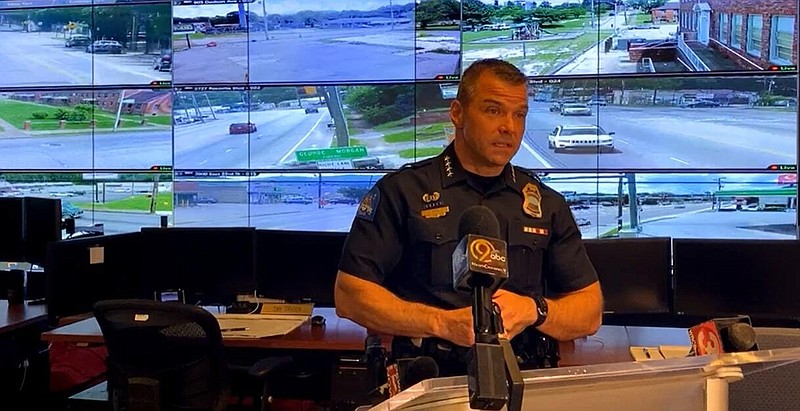Chattanooga police on Wednesday unveiled a new investigative tool that officials say will combine the city's existing 37 public safety cameras (soon to be 53) with opt-in, local, private businesses' security cameras to boost the police department's real-time intelligence center and speed police response.
The system, dubbed Dragonfly Community Connect, will allow businesses with compatible, cloud-linked security systems to voluntarily give police extra eyes when they receive calls for service or a report of a public safety threat.
"As most of you already know, video is increasingly an essential part of our investigations, and the faster the police department can obtain that video, we can respond more effectively," Police Chief David Roddy said.
Putting the system in place - with the help of EPB, the Better Business Bureau, the city's technology department and Genetec Inc., a provider of open-architecture security solutions - has been years in the making, and businesses can now begin opting in by making agreements with the city.
Police say the system is not an invasion of privacy, as livestreams from businesses will not be regularly monitored by officers, but will be accessed when needed.
The Dragonfly system, so dubbed because dragonflies have almost a 360-degree field of vision, does not use facial recognition technology and does not offer priority response to partnering businesses.
Saira Hussain is a staff attorney for a digital privacy group called the Electronic Frontier Foundation
When a police department like Chattanooga's says it will only check the cameras of private businesses when necessary, the department could "100 percent" fall down a slippery slope when determining what is necessary and when, Hussain said.
"Oftentimes, if you give law enforcement the ability to do something and to use surveillance technologies, they may find a reason to do so even if it's not a good reason, or if it's not an authorized reason," Hussain said. "'When necessary' can mean many, many things."
Hussain added there might be issues that come up when determining who decides what's necessary and what's not and whether there is any recourse if it's determined police step out of bounds.
"It's basically opening a Pandora's box that you cannot close when you're offering law enforcement additional surveillance technologies without any sort of oversight mechanism," Hussain said.
Staff writer Patrick Filbin contributed to this report.
